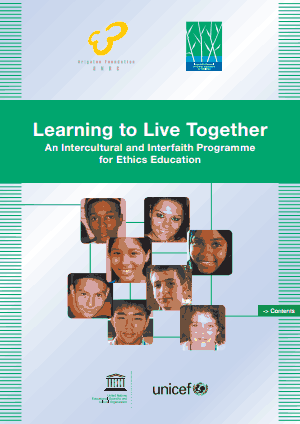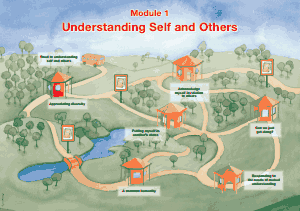08/06/2024 - Hello world!
08/06/2024 - Hello world!
16/05/2024 - Termes de Referència (TdR) per a l’Avaluació Externa del projecte El camí impossible 2022-2024 ACCD
OFERTA
Busquem un/a avaluador/a (o equip) professional per realitzar les tasques d’avaluació externa i transversal del programa: El dret a migrar i refugi: el camí impossible; que abordi l’anàlisi d’implementació i cadena de transformació, incloent impacte i resultats.
OBJECTIU
L’objectiu d’aquesta convocatòria és realitzar una avaluació sobre el projecte atorgat a la convocatòria de subvencions 2022 de l’Agència Catalana de Cooperació al Desenvolupament que té el títol: El dret a migrar i refugi: el camí impossible. L’avaluació ha de servir a l’entitat beneficiària, com a la resta d’actors implicats per incorporar els aprenentatge i bones pràctiques que hagi aportat el projecte durant el cicle de planificació, disseny, formulació, execució i avaluació, difondre els resultats i impactes a la societat i Titulras de Drets, Responsabilitats i Obligacions participants del projecte i contribuir a la transparència i retorn als grups d’interès.
Podeu consultar els Termes de Referència (TdR) en aquest enllaç.
A continuació, compartim un resum dels TdR amb la informació més destacada en relació al projecte, perfil i procés de selecció.
INTRODUCCIÓ AL PROJECTE
Títol del Programa: El dret a migrar i refugi: el camí impossible
L’objectiu general del projecte és el de contribuir a garantir el dret a migrar i a l’asil de les persones en moviment que busquen refugi a l’estat espanyol. Davant aquest objectiu el programa aspira a incidir en les causes estructurals de vulneració dels drets assenyalats anteriorment, i, per això, es planteja com a objectiu específic impulsar un canvi de percepció entre la ciutadania i les institucions pel que fa a la inexistència de Vies Legals i Segures (VLiS) i la necessitat de garantir-les, de manera que diferents grups d’actors clau (polítics, govern, ciutadania, mitjans de comunicació) tendeixin al reconeixement de la necessitat de facilitar VLiS, i pressionar des dels seus àmbits d’acció per a garantir-les.
El projecte està dissenyat per desplegar accions en quadre dimensions: recerca, sensibilització, formació i incidència política.
· Cobertura Geogràfica: El projecte té un abast nacional i internacional. Barcelona, Girona, Lleida, Tarragona, a tot el territori Espanyol (Madrid, Bilbao…)
· Durada del Projecte: De l’1 de desembre de 2022 al 30 de novembre de 2024.
· Pressupost del Projecte: El projecte compta amb un pressupost total de 518.019,00 euros, dels quals 400.000,00 euros són subvencionats per l’Agència de Cooperació Catalana al Desenvolupament.
L’entitat executora del programa és QUEPO, una entitat compromesa amb la promoció de drets humans i justícia global a través de projectes de comunicació i audiovisual,així com d’estratègies de transformació social, sensibilització, l’educació per al desenvolupament, la incidència política i els processos de participació. Posant un interès especial en els continguts de temàtiques socials i polítiques, tant locals com globals, des de l’enfocament interseccional en defensa dels drets humans, la justícia social, la igualtat de gènere i el medi ambient i el respecte a la diversitat i la interculturalitat.
PERFIL I TASQUES A REALITZAR
Objectius i abast de l’avaluació
En el projecte s’estableix la realització d’una avaluació final, d’impacte i resultat, a realitzar per una persona avaluadora o una entitat independent a les estructures de l’entitat beneficiaria, amb càrrec a les despeses directe del projecte.
· Durada de l’Avaluació: 5 mesos, de novembre de 2024 a abril de 2025.
· Tipologia d’Avaluació: Avaluació externa i transversal que aborda l’anàlisi d’implementació i cadena de transformació, incloent impacte i resultats.
· Pressupost per a l’Avaluació: 8.000,00 euros (+ IVA).
Metodologia d’avaluació proposada
· Enfocament Metodològic: Combinació d’aproximacions quantitatives i qualitatives, utilitzant eines com entrevistes, enquestes, grups de discussió, i anàlisi de dades existent a partir de documents elaborats.
· Fonts d’Informació: Recopilació a partir de documents del projecte, trobades amb actors clau, i tallers participatius.
Perfil requerit per a l’equip d’avaluació
· Formació acadèmica en EGBDH, seguiment i avaluació de projectes i programes
· Experiència en avaluacions d’impacte i resultats
· Experiència i coneixements específics en gènere, drets humans i polítiques migratòries, d’asil i refugi
· Experiència en la realització d’avaluacions i/o estudis de l’ACCD serà un valor agregat
· Coneixements tècnics de l’àrea del programa: principis de gestió del cicle de projectes i els mètodes de treball
En cas d’un equip d’avaluació, la seva composició d’experts haurà de ser equilibrada, de forma que els diferents aspectes de l’avaluació del programa (mètodes i tècniques d’avaluació) quedin coberts.
Productes esperats de l’avaluació
· Informe de concreció metodològica
· Informe de treball de camp (en cas necessari que especifiqui les enquestes realitzades, etc.)
· Informe d’avaluació (versió preliminar)
· Informe d’avaluació final
· Informe executiu (breu per difusió)
CANDIDATURES I PROCÉS DE SELECCIÓ
Les propostes tècniques s’han de presentar electrònicament al correu electròni: diana@quepo.org indicant en l’assumpte: AVALUACIÓ EXTERNA VLIS ACCD2022-24
Data límit de recepció de propostes: 6 de juny de 2024 (a les 23:59h, CET)
Expectatives del contingut de la proposta tècnica:
· Portada on s’indica: Nom de la persona o de l’equip avaluador, títol de l’avaluació i dades de contacte
· Proposta metodològica de treball (preliminar) detallada; aquesta secció es considera molt important, s’espera que la part avaluadora detallin la metodologia per a respondre a les preguntes d’avaluació segons les fons de verificació, informació útil i actors involucrats (veure dossier TdR detallat)
· Adequació a l’EGBDH
· Pla de treball amb calendari
· Proposta de matriu d’avaluació
· Pressupost detallat
· CV (en cas que sigui un equip avaluador, s’haurà d’incloure el currículum de cada un dels membres)
Ens posarem en contacte amb la proposta seleccionada en un màxim de 15 dies un cop finalitzat el termini de presentació.
Podeu consultar els Termes de Referència (TdR) en aquest enllaç.
Per qualsevol aclariment o dubte, us podeu posar en contacte amb nosaltres a través del correu electrònic o per trucada telefònica:
Diana Osadci | diana@quepo.org | 931 867 511
L'entrada Termes de Referència (TdR) per a l’Avaluació Externa del projecte El camí impossible 2022-2024 ACCD ha aparegut primer a Quepo.
31/07/2023 - The Ethics Education Fellowship: Insights From the Webinars with Teachers
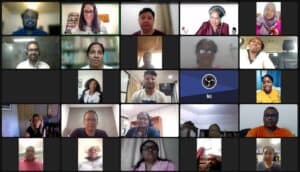
On 4 July 2023, the fellows and teachers of the Ethics Education Fellowship program gathered for the first time at a Global Community of Practice meeting. While the 30 fellows from Bangladesh, Indonesia, Kenya, Mauritius, Nepal, and Seychelles had been meeting regularly, this was the first meeting where the teachers had the opportunity to connect with colleagues from the six participating countries.
Under the title “Bringing Ethics Education to Life in our Classrooms,” the webinar brought together over 200 teachers. During the two-hour session, teachers shared their experiences of implementing ethics education in their classrooms and highlighted the challenges they face. These challenges include sustaining transformations in learners amidst negative stereotypes and biases reinforced by families and communities, as well as dealing with competitive education systems and limited time availability for participatory and collaborative learning.
However, teachers also spoke positively about how transformative pedagogy has allowed for dynamic engagement with learners, leading to improved relationships and increased reflection on diversity within their communities.
The webinar aimed to promote a deeper understanding of transformative pedagogy, and teachers from different countries had the opportunity to listen to each other’s experiences. Language interpretation in various languages, including English, Bahasa Indonesia, Bengali, and Nepali, was provided to ensure inclusivity and effective communication.
The success of the first webinar inspired another session that took place on 25 July 2023. Over 100 educators attended this session to further advance knowledge and reflections on how to support meaningful learner-led actions. The emphasis was on fostering positive transformations within the communities. Participants had the opportunity to listen to positive examples of genuine child-led actions. They reflected on the value of allowing learners to propose ideas, conduct their own projects and carry out actions to bring positive transformations in their communities. They also discussed the importance of teachers providing proper and strong support to children.
The webinar was an extraordinary opportunity for teachers from different countries, cultures, and religions to come together, share their experiences and reflect on how they can promote and ensure meaningful participation of learners in their classrooms.
The Ethics Education Fellowship program is a collaboration between the ministries of education of Bangladesh, Indonesia, Kenya, Mauritius, Nepal, and Seychelles, together with Arigatou International, the Guerrand-Hermès Foundation for Peace, the KAICIID International Dialogue Centre, the Muslim Council of Elders, and UNESCO, represented by the UNESCO Regional Office for Eastern Africa and the UNESCO New Delhi Cluster Office. The process is supported by the National Commissions for UNESCO.
The post The Ethics Education Fellowship: Insights From the Webinars with Teachers appeared first on Ethics Education for Children.
The post The Ethics Education Fellowship: Insights From the Webinars with Teachers appeared first on Arigatou International.
03/07/2023 - Advancing Inclusive and Peaceful Societies: The Ethics Education Fellowship is Making Strides in Africa and Asia
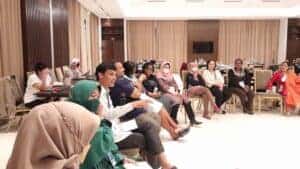
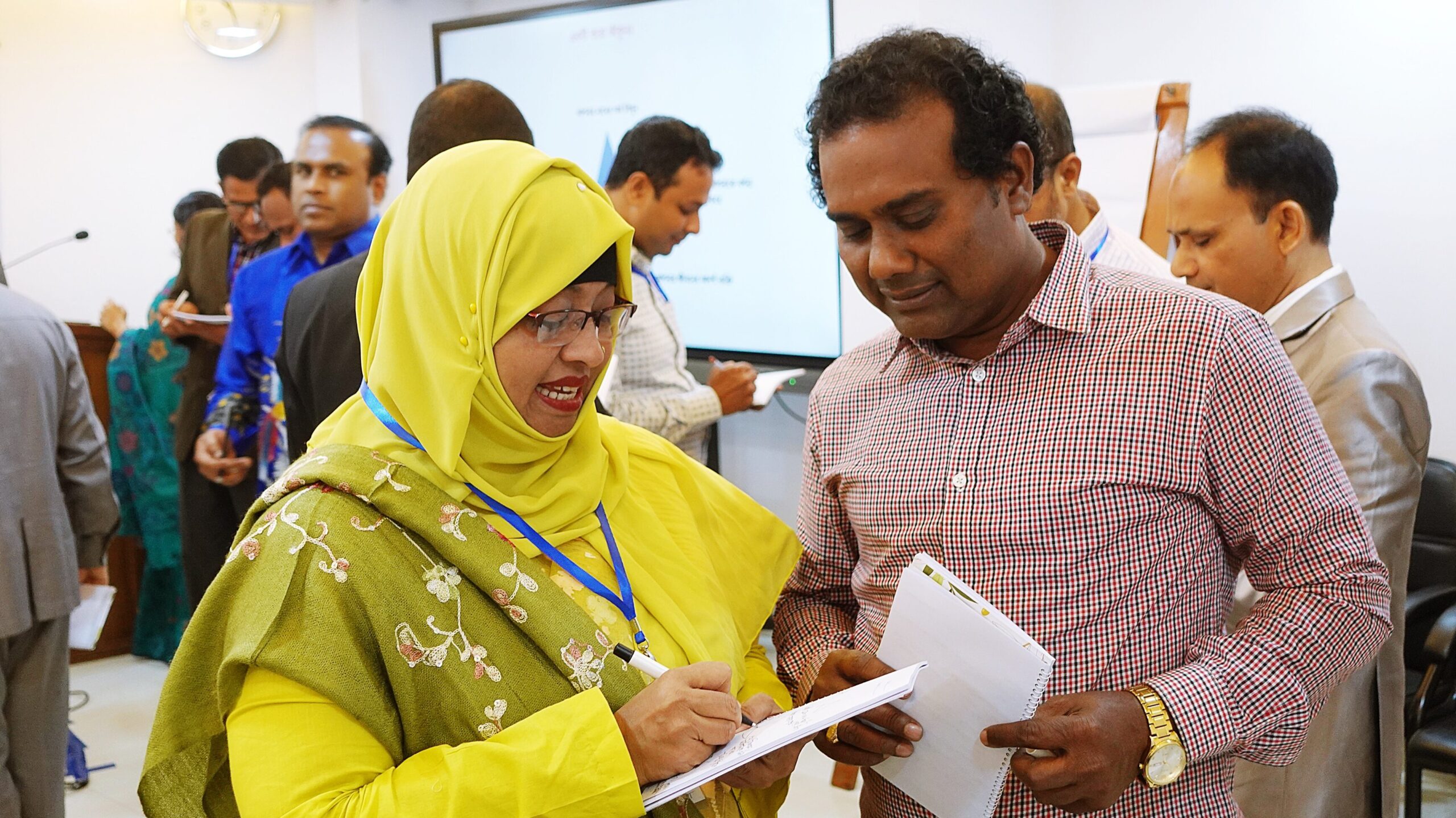
The Ethics Education Fellowship program unfolded simultaneously across six countries, making significant strides to strengthen the sustainable delivery of ethics education programs for children. Through the program, 323 teachers have been trained, paving the way to impact 4,430 children in Bangladesh, Indonesia, Kenya, Mauritius, Nepal, and Seychelles in its first year.
This groundbreaking initiative brings together six ministries of education and UNESCO National Commissions, which have worked hand in hand to integrate ethics education into their national programs. The ministries have made institutional commitments to pilot ethics education programs in formal education settings, to contribute to their national educational goals and ultimately strengthen the social cohesion to build more peaceful and inclusive societies.
“Ethics education is at the center of our planning of transforming education. It is much more important to have ethics at the center of given education rather than to have a good school infrastructure, teacher training, books and modern technologies by which we are providing it,” stated Dr. Dipu Moni, Minister of Education of Bangladesh.
This collaborative effort is made possible through a partnership between Arigatou International, the Guerrand-Hermès Foundation for Peace, the KAICIID International Dialogue Centre, the Muslim Council of Elders, the UNESCO Regional Office for Eastern Africa, and the UNESCO New Delhi Cluster Office, in collaboration with the National Commissions for UNESCO of the participating countries.

A Transformative Pedagogy Approach
Education plays a critical role in building more inclusive, peaceful societies. Ethics education, in particular, can equip teachers to provide educational spaces that nurture in learners the kind of ethical values and ethical reflection practices that can equip them to flourish and thrive.
“When we talk of ethics education we are not talking about the philosophical study of ethics, we are talking about creating spaces for children. We want to go on a journey with you to help empower our children,” explained Mr. Suchith Abeyewickreme, Program Officer, Arigatou International – Geneva.
Ethics Education equips children and youth with life skills by employing transformative pedagogical approaches that place them at the center of learning, enhance their capacity to think critically, make ethical decisions, and learn to work collaboratively with others to make positive contributions to their communities.
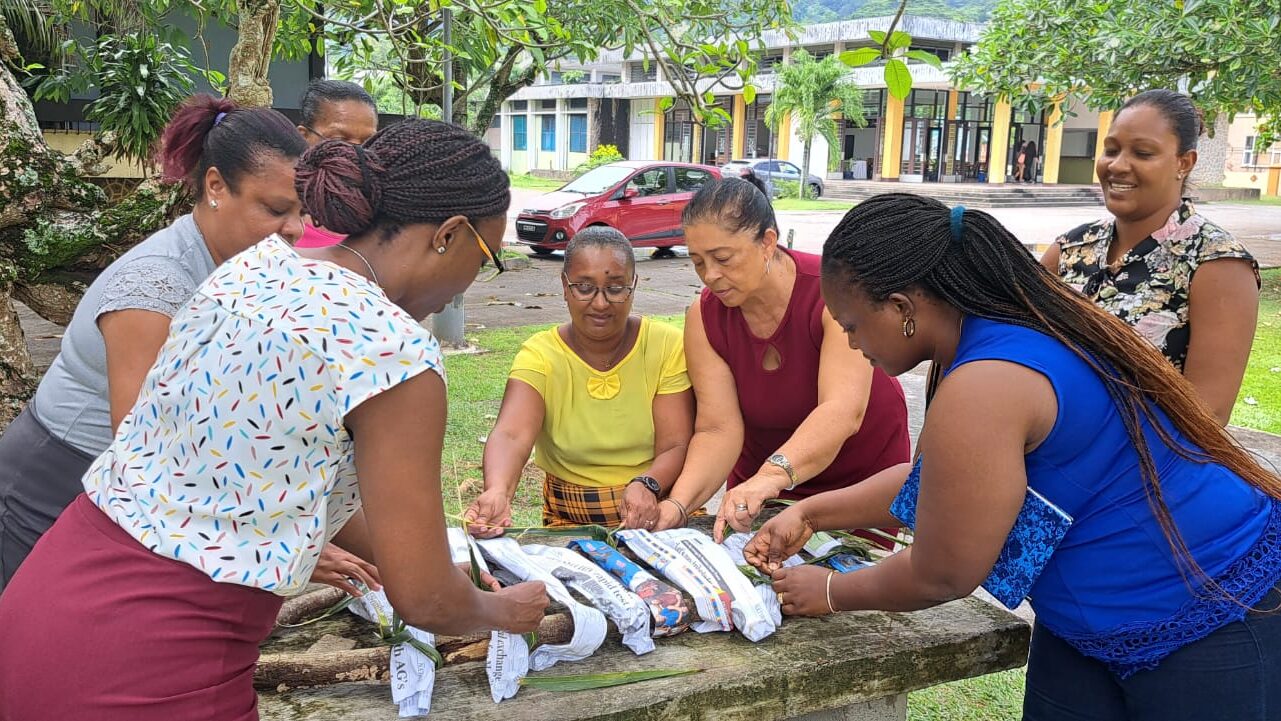
First Train the Trainers Workshop
The Ethics Education Fellowship kicked off in Indonesia on 3-9 October 2022 with a Train the Trainers Workshop for the 30 fellows, which includes ministry officers, school principals, teachers, professors, lecturers, teacher trainers, and curriculum developers from the six participant countries. At the workshop, the fellows were trained in designing and delivering training workshops for teachers.
“The fellows are ethics education champions in their country. They will serve to strengthen the country’s capacity for ethics education through the capacity development of teachers and teacher education as well as school-based initiatives,” explained Ms. Mary Kangethe, Director of the Education Programme at the Kenya National Commission for UNESCO.
During this immersive workshop, the fellows sharpened their knowledge, skills, and competencies in ethics education and transformative pedagogies that support dialogue, reflection and action. They are now spearheading the program at the national level, and working with other government education partners to ensure that ethics education can be integrated into training, national programming and policies.
Mike Waltner, Senior Programme Manager for the Asia Region Programme at the International Dialogue Centre – KAICIID described this initiative as transformative. “It’s more than integrating ethics and dialogue into education systems; it’s about catalyzing societal change. Teachers are bringing the lessons from the fellowship into classrooms and beyond to empower children and youth to be agents of that change. At KAICIID, we believe in the power of dialogue to foster understanding and peace. This project equips young learners to be leaders who can work together with their peers from different religions and cultures to create a better world,” he said.

Training Workshops for Teachers
Between January and May 2023, the fellows conducted national training workshops for teachers, with the technical support of international trainers from Arigatou International and KAICIID. In total, 323 teachers were trained in the implementation of ethics education programs for children.
“If I hadn’t attended this workshop on ethics education, I wouldn’t have noticed several things that I’m aware of now. This workshop has had a direct impact on me. I now find myself automatically thinking, reflecting, and seeing things differently,” shared one of the participants from Seychelles.
A participant from Nepal shared how the workshop had helped him become aware of his own unconscious biases. He understood the importance of treating all children equally, regardless of their differences, and felt empowered to ensure fairness and inclusivity for all students in the classroom.
These trained teachers are set to implement ethics education programs in their schools according to their country’s implementation plans. In its inaugural year, the program aims to reach 4,430 children.
The group of partners developed a comprehensive Training Guide to support the national teacher training workshops, offering step-by-step guidelines to support fellows to conduct the workshops, along with a framework and tools for monitoring, evaluation and learning. A Teacher Activity Booklet was also developed to support the designing and delivering of ethics education programs in the classroom.
The guides are based on Arigatou’s Ethics Education Approach and the expertise of KAICIID on interreligious and intercultural dialogue as central components of a transformative pedagogy that contribute to the promotion of global citizenship. They also include a human-centered education approach, promoted by the Guerrand-Hermes Foundation for Peace, that places the learner at the center of the education experience.
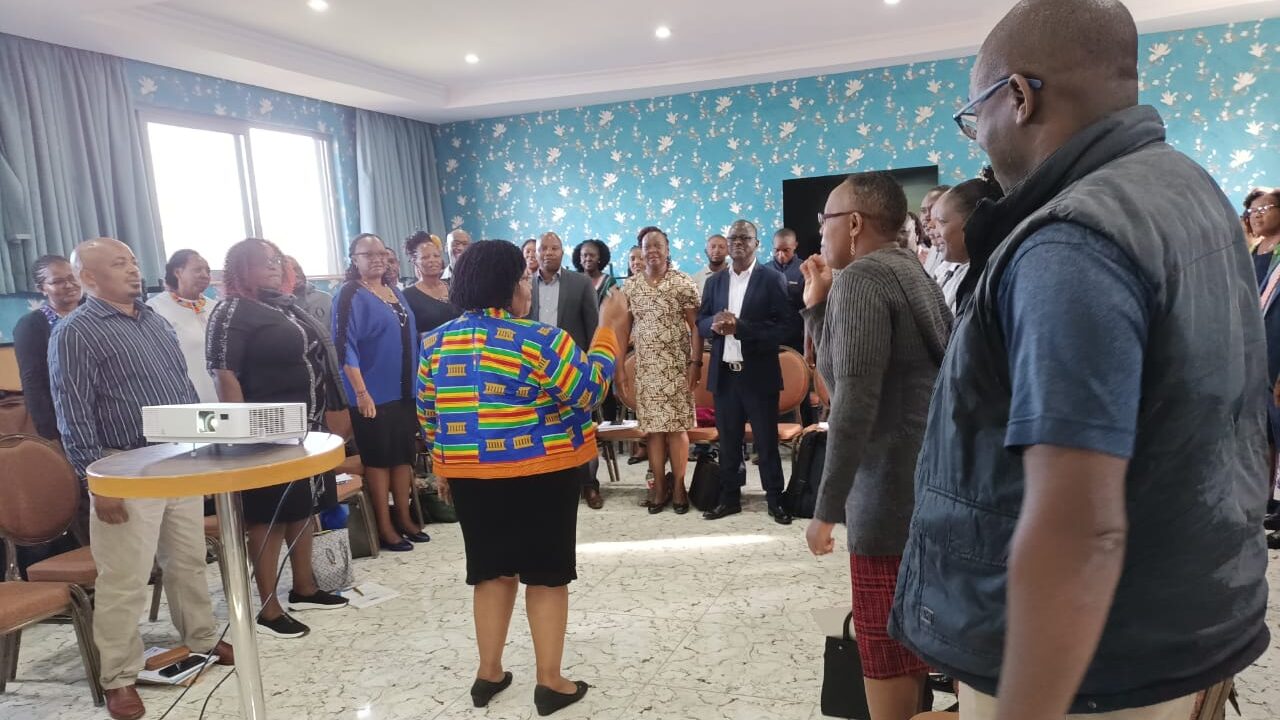
A Global Community of Practice
This initiative not only aims to establish a network of formal education institutions but also provides a platform for sharing knowledge and building capacity. In this light, a Global Community of Practice was established, fostering a network of Fellows. Through monthly webinars, participants deepen their knowledge on specific topics, receive support in preparing national workshops, share experiences, and strengthen connections.
Reflecting on the benefits of belonging to the Global Community of Practice, Ms. Nita Isaeni, a fellow from Indonesia said: “Being part of this community means a lot to me. It’s a place where I can learn and improve, not just in terms of knowledge but also in how I perceive things and connect with my inner self. Moreover, I get the opportunity to build connections and social networks with people from all over the world, which is very valuable to me.” Ms. Isaeni is the Coordinator of Learning Transformation, at the Directorate of Teachers for Primary School, MoECRT.
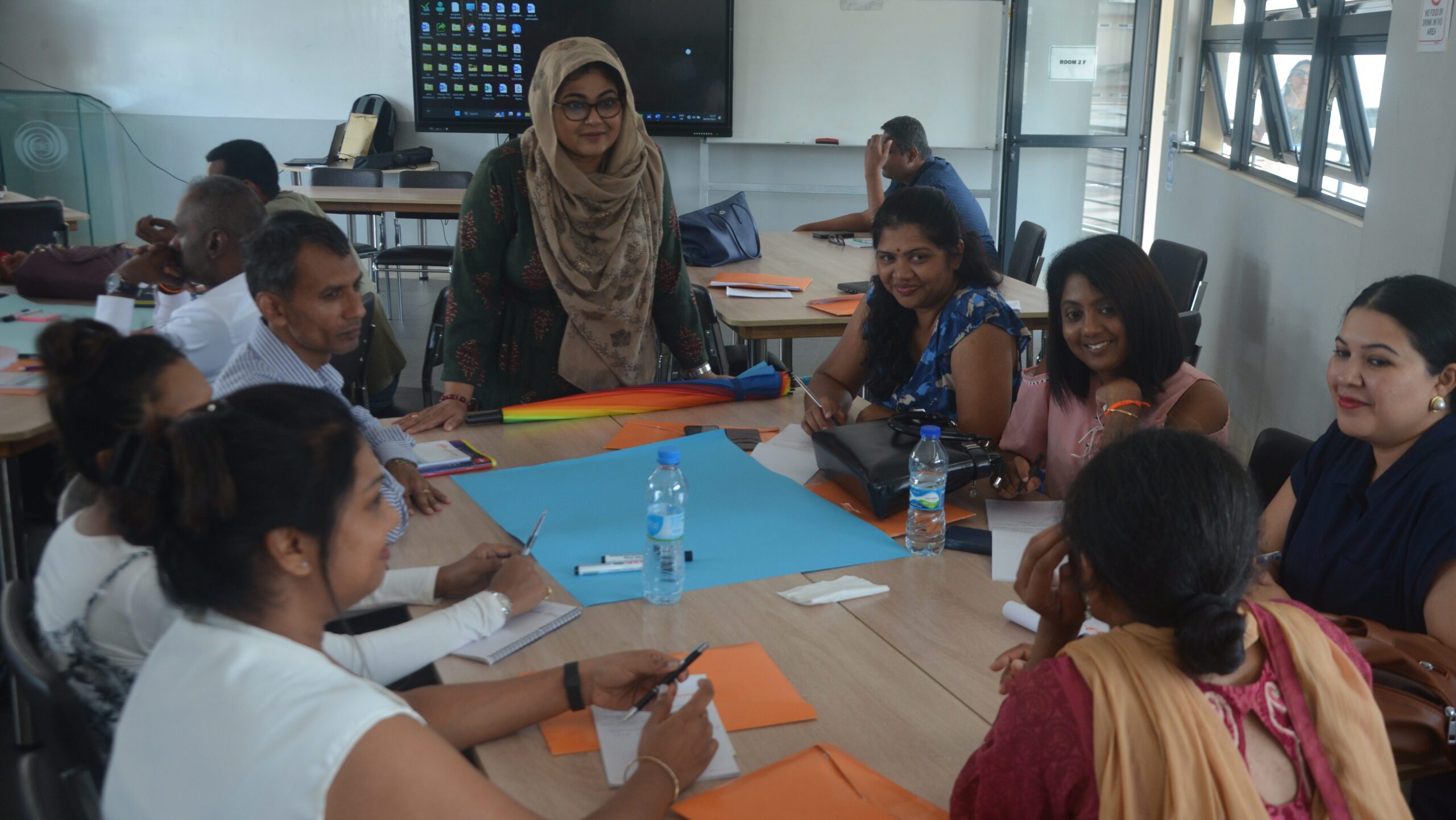
Implementation with children in schools
In March 2023, the implementation with children began, yielding encouraging results. Teachers have witnessed positive outcomes, with notable improvements in student engagement and participation. Integration of peace and ethics clubs in schools has been a successful initiative, fostering a sense of community. Ms. Norah Babu, a teacher from Thogoto Model Primary School in Kenya, shared her perspective: “Through participatory and collaborative learning, students who were once hesitant to ask questions now feel comfortable seeking assistance from their peers. I’ve also learned the importance of creating a safe learning environment, resulting in my students eagerly anticipating my lessons.”
The Ethics Education Fellowship responds to the critical need to prioritize and invest in ethics education within formal education systems. By building the capacity of teachers to foster positive relationships and empower learners, the program contributes to the creation of more inclusive, respectful, and resilient societies. Equipped to respond to ethical challenges, students become active citizens and agents of positive change.
The Ethics Education Fellowship program serves as an inspiring example of the power of collaboration, dedication, and a shared commitment toward children, their education, and the future of our societies.
This news article has been developed jointly by the partners of the Ethics Education Fellowship.
The post Advancing Inclusive and Peaceful Societies: The Ethics Education Fellowship is Making Strides in Africa and Asia appeared first on Ethics Education for Children.
The post Advancing Inclusive and Peaceful Societies: The Ethics Education Fellowship is Making Strides in Africa and Asia appeared first on Arigatou International.
12/06/2023 - Empowering Educators in Seychelles: National Teacher Training Workshop by the Ethics Education Fellowship
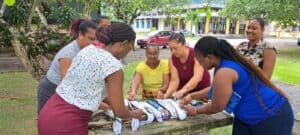
The Ethics Education Fellowship made its debut in Seychelles with a national Teacher Training Workshop, held from 20 to 24 February 2023, which brought together 20 primary and secondary school teachers. The program, endorsed by the President of Seychelles and approved by the Cabinet of Ministers, aims to extend its reach to over 450 children across 15 schools.

The Ethics Education Fellowship Program
The Fellowship Program is a collaborative initiative involving the ministries of education from Bangladesh, Indonesia, Kenya, Mauritius, Nepal, and Seychelles. The program seeks to enhance the sustainable implementation of ethics education programs in formal education settings, promoting intercultural and interreligious learning and dialogue, as a contribution to global citizenship, and building more inclusive and peaceful societies.
By building the capacities of educators in each participating country, the program equips them with the skills to design and facilitate transformative learning journeys for children. This approach places learners at the center of the educational experience, fostering critical thinking, ethical decision-making, and collaborative problem-solving to empower them to make positive contributions to their communities.
Ms. Diana Monthy, a Lecturer at the Seychelles Institute of Teacher Education and a Fellow of the program, highlighted the importance of ethics education for the country. Referring to the national Constitution’s preamble, she emphasized that the program presents a timely opportunity to assess the national commitment and progress in creating “a just, fraternal and humane society in a spirit of friendship and co-operation with all peoples of the world… and where Seychelles serve as an example of a harmonious multi-racial society.”
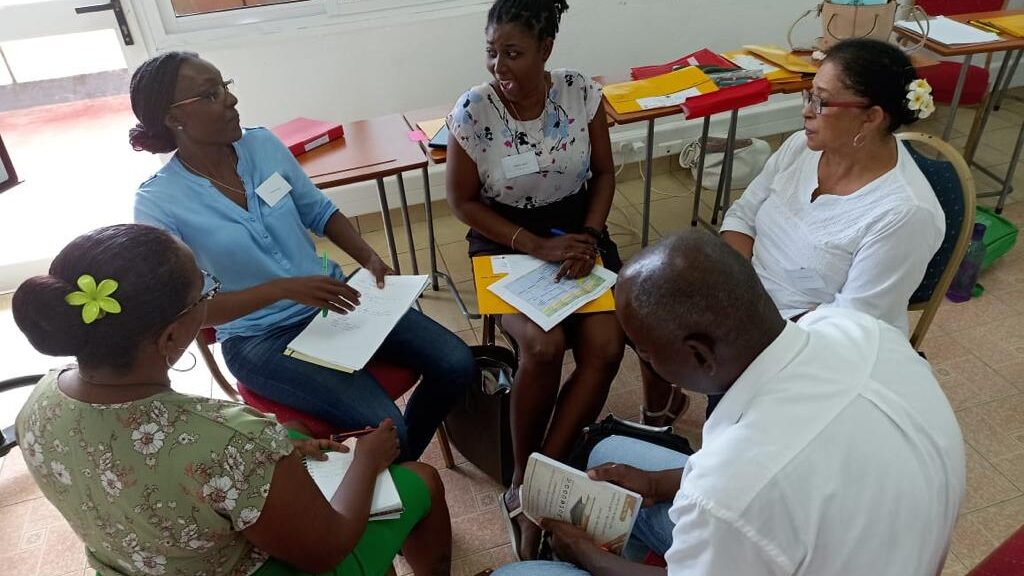
The Training Workshop for Teachers
Ms. Merna Eulentin, the Principal Secretary for Education of Seychelles, took the stage at the opening ceremony of the training workshop for teachers, setting the tone for the upcoming days. In her opening remarks, Ms. Eulentin emphasized the Government of Seychelles’ commitment to ethics education and its importance as a means to strengthen educational programs: “Ethics education is the focal point at this critical untimely topic, it is a means to strengthen education programs that foster ethical values in an inter-cultural learning context,” she said. She also highlighted how this initiative aligns with Sustainable Development Goal 4.7, promoting a culture of peace, global citizenship, non-violence, and appreciation of cultural diversity.
The event was attended by the Executive Director of the Office of the Minister of Education, members of the National Assembly, the Dean of the University of Seychelles, as well as students and teachers.
Facilitator Mr. Suchith Abeyewickreme from Arigatou International delivered a keynote address, emphasizing the necessity of ethics education in a world that is increasingly diverse and interconnected. Mr. Abeyewickreme highlighted the need to acknowledge and engage with the diversity within classrooms and among teachers, making it an essential aspect of education.

Hosted at the University of Seychelles, the workshop was led by the national team of fellows with support from Mr. Abeyewickreme. The participants consisted of school teachers specializing in Personal Social Education and Catholic Religious Education.
Throughout the five-day workshop, participants familiarized themselves with the Ethics Education framework presented in the program. The framework is centered around three pillars: relationships, ethical reflections, and collective action. This approach enables learners to develop positive relationships, engage in ethical reflection and dialogue, and enhance their ability to live together harmoniously. By cultivating these skills, the program aims to empower children to effect positive change within their communities, fostering their personal growth and contributing to their societies.
Reflecting on the workshop, one participant shared, “If I hadn’t attended this workshop on ethics education, I wouldn’t have noticed several things that I’m aware of now. This workshop has had a direct impact on me. I now find myself automatically thinking, reflecting, and seeing things differently.”

Launch of the Implementation in Schools
The Fellowship Program was officially launched in Seychelles on 31 March 2023 in a formal ceremony, marking the beginning of its implementation with children from local schools.
The ceremony started with an address from Dr. Justin Valentin, Minister of Education of Seychelles, followed by Mrs. Vicky Michel, Secretary General of the Seychelles National Commission for UNESCO, and Ms. Maria Lucia Uribe, Executive Director of Arigatou International – Geneva.
During the ceremony, the team of fellows presented the Ethics Education Fellowship highlighting its pillars and transformative pedagogical approach. Subsequently, certificates were awarded to the trained teachers.
Mr. Ahmed Afif, Vice President, and Mrs. Linda Ramkalawan, First Lady of the Republic of Seychelles, also attended the event. Artistic performances, including a song and a Creole dance performed by children, added to the celebratory atmosphere of the ceremony.
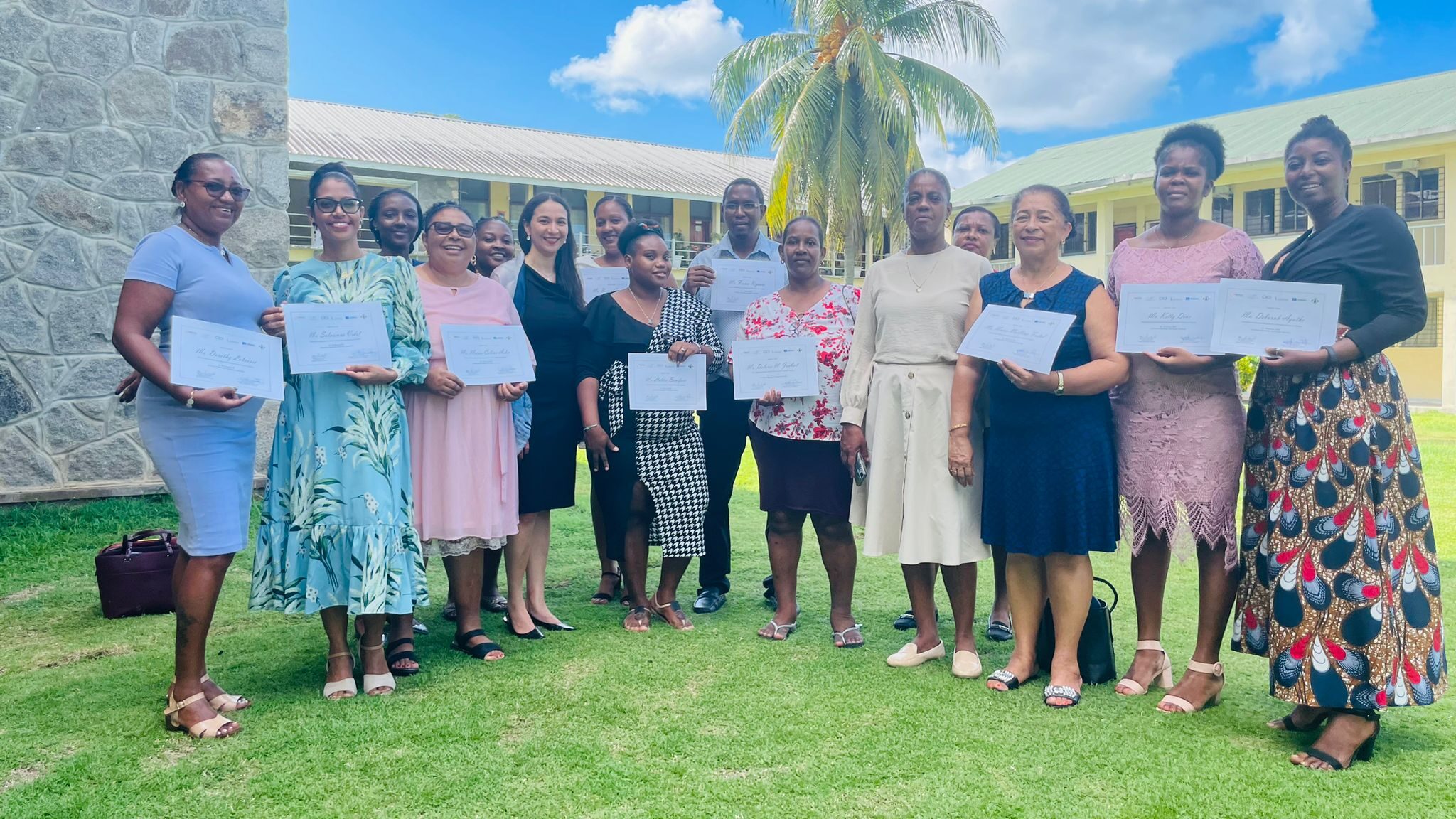
A Collaborative and Multistakeholder Journey
The Ethics Education Fellowship program is built on a fellowship model, with five representatives from each country collaborating to lead the national efforts. These representatives include educators and ministry officers who organize training workshops for teachers, monitor the successful implementation of ethics education programs for children, and advocate for the crucial role of ethics education at a national level.
Furthermore, the fellows have established a Global Community of Practice to foster collaboration, share experiences and work together for the expansion of the program.
The program is a collaboration between the ministries of education, together with Arigatou International, the Guerrand-Hermès Foundation for Peace, the KAICIID International Dialogue Centre, the Muslim Council of Elders, and UNESCO, represented by the UNESCO Regional Office for Eastern Africa and the UNESCO New Delhi Cluster Office. The process is supported by the National Commissions for UNESCO of Indonesia and Kenya.

We extend our heartfelt appreciation to the dedicated fellows: Ms. Betty-Mai Sofa, Ms. Sharon Frederic, Ms. Diana Monthy, Ms. Sandra Jeanne and Ms. Erica Derjacques-Inacio. We thank them for their invaluable contribution in conducting this teacher training workshop. We would also like to express our sincere gratitude to the partners and organizations involved, whose collaboration and support have played a pivotal role in ensuring the sustainability of this program.
The post Empowering Educators in Seychelles: National Teacher Training Workshop by the Ethics Education Fellowship appeared first on Ethics Education for Children.
The post Empowering Educators in Seychelles: National Teacher Training Workshop by the Ethics Education Fellowship appeared first on Arigatou International.
09/06/2023 - The Ethics Education Fellowship Makes Strides in Bangladesh
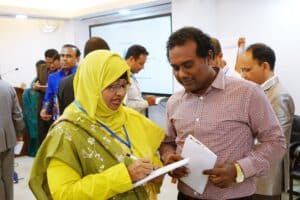

A group of 38 teachers from Bangladesh recently participated in a 5-day training workshop as part of the Ethics Education Fellowship program. The workshop aimed to equip these educators with the necessary skills to implement the program in 19 schools, benefiting approximately 1,200 children across the country.
The Ethics Education Fellowship program is a collaborative initiative between the governments of Bangladesh, Indonesia, Kenya, Mauritius, Nepal, and Seychelles. Its objective is to foster ethical values in children, promote global citizenship and build a more peaceful and inclusive society. The Directorate of Secondary and Higher Education – DSHE, under the Ministry of Education of Bangladesh, is responsible for coordinating the program in the country.
Program Launch in Bangladesh
On 22 January 2023, the Ethics Education Fellowship program was officially launched in the People’s Republic of Bangladesh. Dr. Dipu Moni, the Minister of Education of Bangladesh, participated in this occasion. In her keynote speech, Dr. Moni emphasized the crucial role of ethics education in transforming education, stating, “Ethics education is at the center of our planning. It is much more important to have ethics at the core of education than to focus solely on infrastructure, teacher training, books, and modern technologies.”
The launch ceremony also saw the participation of Mr. Mohibul Hassan Chowdhury, Deputy Minister; Mr. Suleman Khan, Secretary, Secondary and Higher Education Division, Ministry of Education; Prof. Nehal Ahmed, Director General, Directorate of Secondary and Higher Education; Ms. Susan Viz, Officer in Charge of UNESCO Bangladesh, representatives from partner organizations, as well as teachers and children.
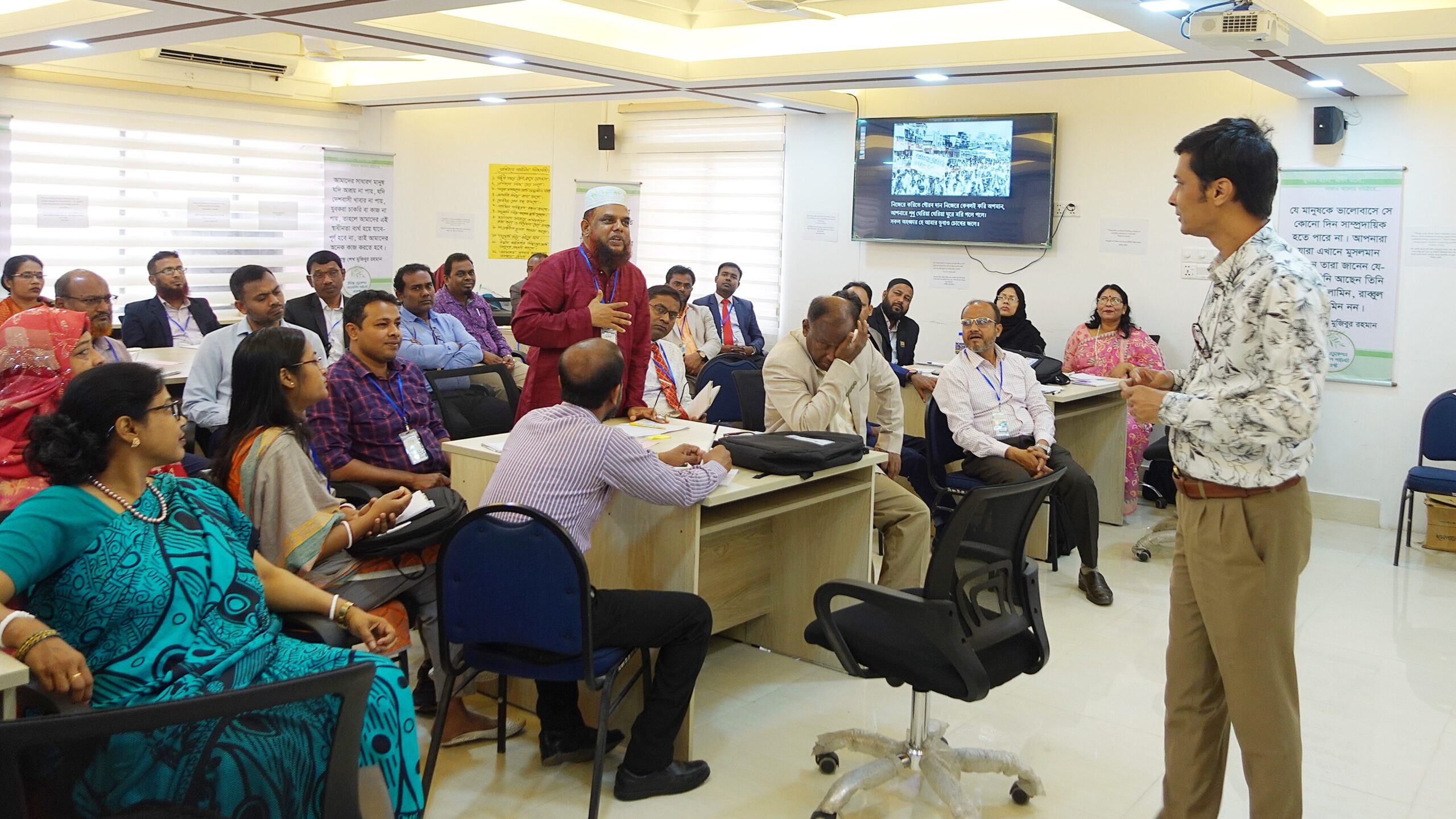
Training Workshop for Teachers
The training workshop for teachers took place from 22 to 26 February 2023. The local fellows, a group of five educators and ministry representatives, facilitated the workshop. The fellows play a pivotal role in leading the training, delivery, and advocacy efforts within the country.
Additionally, Ms. Eleonora Mura, Senior Expert on Monitoring, Evaluation, and Learning from Arigatou International, provided support and guidance to the fellows during the workshop.
The opening ceremony of the training workshop featured keynote speeches by Dr. Suleman Khan, Secretary for Secondary and Higher Education, and Mr. Md. Belayer Hossain Talukdar, Additional Secretary. They emphasized the importance of ethics education in fostering critical thinking, and positive relationships, and implementing Global Citizenship Education. They also highlighted how the ongoing curriculum reform in Bangladesh has integrated ethics as a vital component, which is being incorporated into grades 1 and 2, as well as 6 and 7.
During the workshop, participants explored the Ethics Education Conceptual Framework, centered around three pillars: Relationships, Ethical Reflection and Dialogue, and Collective Action. Ms. Amina Begum, Senior Teacher of Bengali at Biddamoye Govt. Girls School, shared her perspective, stating, “The concept of dialogue and a safe learning environment are very meaningful aspects that will help me prepare and implement ethics education with children.”
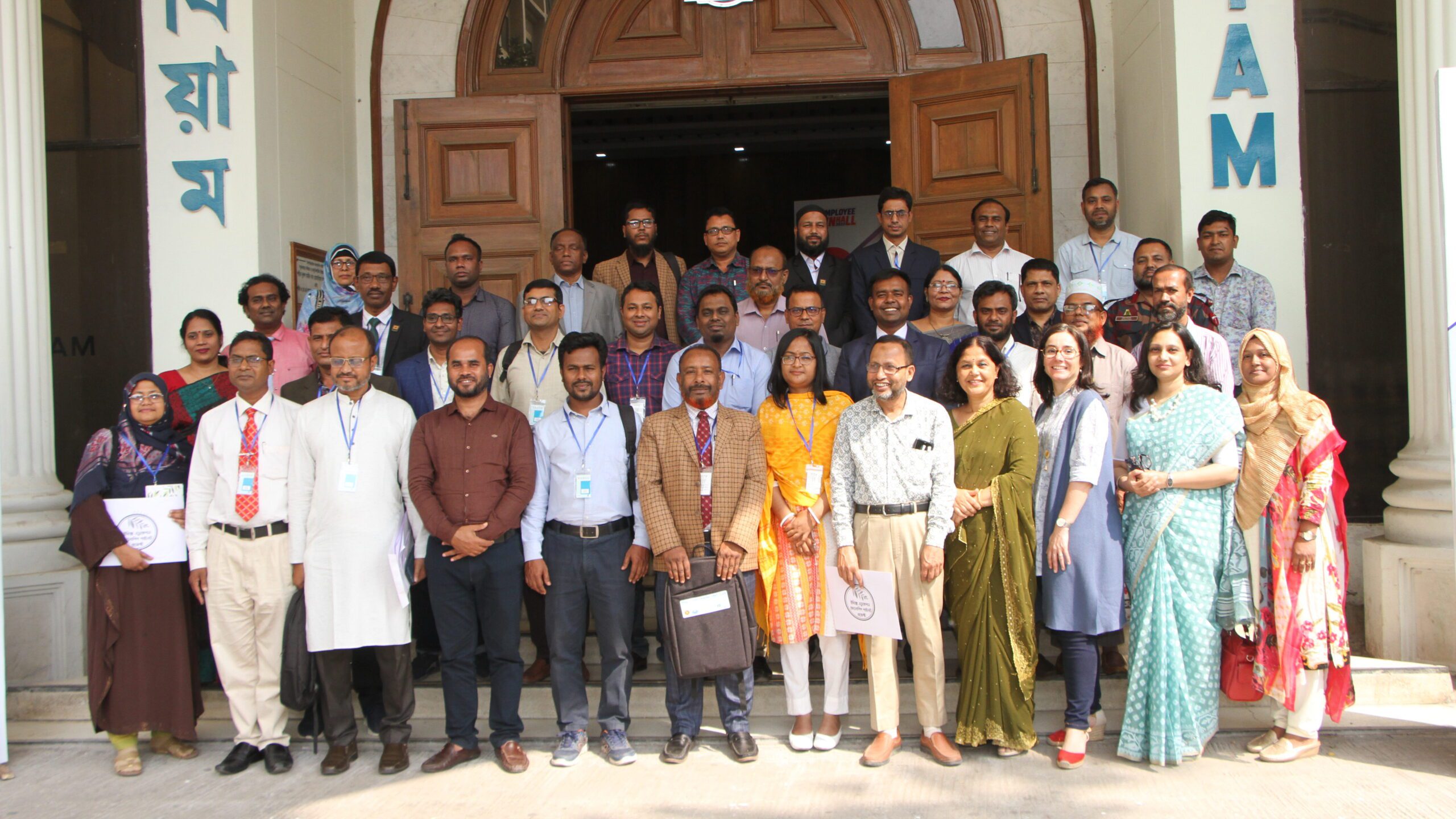
A Transformative Impact on Teachers
After completing the workshop, the trainees expressed how the transformative pedagogy approach presented in the program empowered them to critically question their assumptions and biases. They felt encouraged to examine the root causes of social injustices and take action to create a more just and equitable society. The teachers recognized their potential as powerful advocates for change within their schools and communities, driving improvements in education at all levels.
Mr. Joydip Dey, one of the program fellows, highlighted the significant benefits brought about by the program. He pointed out, “In our previous education system, there was a heavy emphasis on rote learning, resulting in students being fed pre-structured ideas. Unfortunately, this approach sometimes contributed to increased intolerance in society. However, with the introduction of the new curriculum, we are now prioritizing independent thinking among learners, which strongly aligns with the principles of ethics education. It is indeed a crucial time to implement ethics education in Bangladesh.” Mr. Dey is an Assistant Professor at the Government Teachers Training College in Dhaka and a member of the subject committee of the National Curriculum Framework.
The implementation of the program with children in schools began in March, yielding highly positive responses from teachers, with significant engagement observed among the participating children.
We extend our sincere appreciation to the dedicated fellows: Ms. Geetanjali Barua, Mr. S.M. Shafiul Alam, Mr. Zonayed Ahmed, Mr. Joydip Dey, and Dr. Syed Mizanur Rahman. We also thank all the individuals and organizations involved in the successful execution of the Ethics Education Fellowship program in Bangladesh, and the teachers for their commitment and enthusiasm.
The post The Ethics Education Fellowship Makes Strides in Bangladesh appeared first on Ethics Education for Children.
The post The Ethics Education Fellowship Makes Strides in Bangladesh appeared first on Arigatou International.
05/06/2023 - Indonesian Teachers Complete the Training Phase of the Ethics Education Fellowship Program

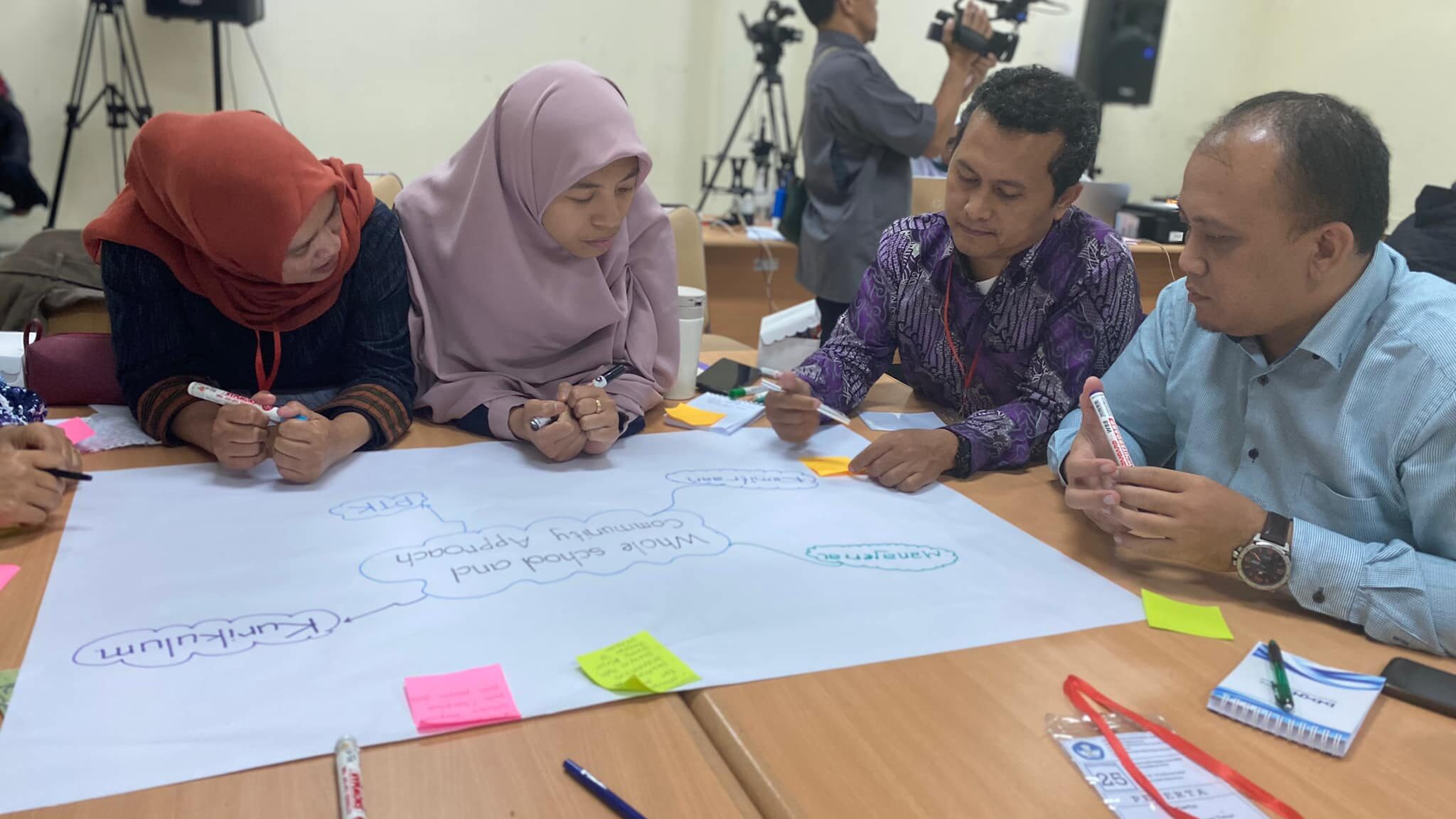
The training workshops for teachers under the Ethics Education Fellowship, concluded successfully in Indonesia, reaching 200 participants from five regions. The teachers received specialized training through engaging activities, equipping them with the necessary skills and knowledge to implement ethics education programs in their local schools. It is estimated that these teachers will reach 1,500 students by the end of 2023.
A Collaborative and Multistakeholder Journey
Designed to strengthen the sustainable delivery of ethics education programs for children, the Fellowship invites teachers to prepare and facilitate a learning journey for children. This approach helps learners to develop positive relationships with themselves and others, engage in ethical reflection and dialogue, enhance their ability to learn to live together and develop collective actions to make positive impacts in their communities.
The Ethics Education Fellowship is being carried out simultaneously and collaboratively in Bangladesh, Indonesia, Kenya, Mauritius, Nepal, and Seychelles. The program operates on a fellowship structure, where dedicated representatives from each country play a key role. These fellows lead the national efforts by organizing training workshops for teachers, ensuring the successful implementation of ethics education programs with children, and advocating for the importance of ethics education on a national scale. Furthermore, the fellows have established a Global Community of Practice to learn from each other, collaborate and support the expansion of the program.
This program is a collaborative effort involving Arigatou International, the Guerrand-Hermès Foundation for Peace, the KAICIID International Dialogue Centre, the Muslim Council of Elders, and UNESCO, which is represented by the UNESCO Regional Office for Eastern Africa and the UNESCO New Delhi Cluster Office. The process is supported by the National Commissions for UNESCO of Indonesia and Kenya. The program is being led in each country by the ministries of education, through the fellows, a group of educators and ministry officers, that were trained as teacher trainers back in October 2022.
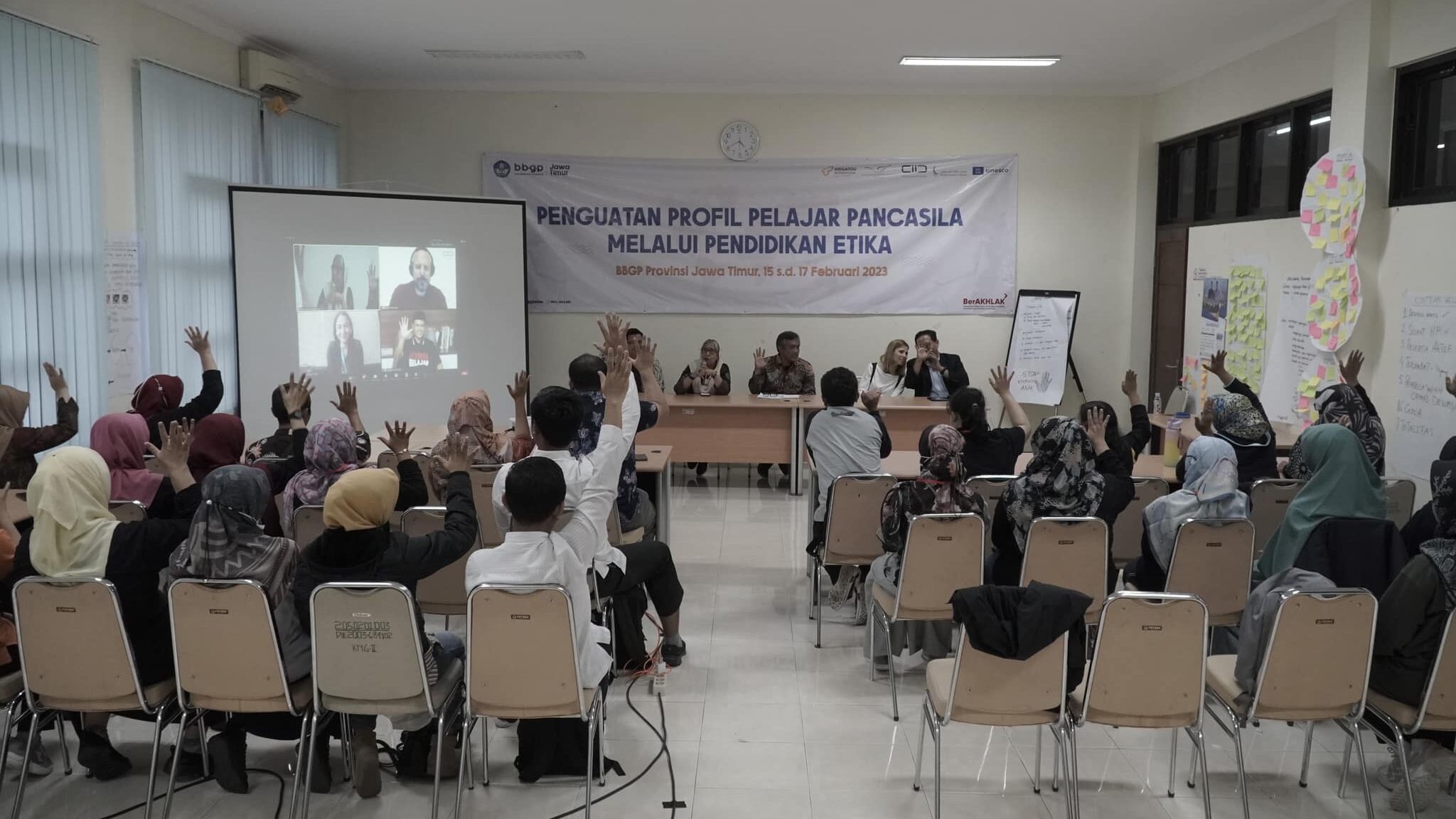
Empowering Teachers through Training in Indonesia
The training program for Indonesian teachers consisted of two phases. The first phase, a hybrid workshop held in Suravaya in February 2023, brought together 67 participants from various regions. Over three days, participants had the opportunity to share their experiences, discuss critical issues affecting learners, and explore the role of education in addressing these challenges. Key topics included discrimination, stereotypes, violence, and their impact on children’s lives in schools.
Participants explored the Ethics Education Conceptual Framework which is built around three pillars: Relationships, Ethical Reflection and Dialogue, and Collective Action. They reflected on what ethics means in their lives and their interactions with others, and on the ethical challenges they, the children and their communities face. While doing it, participants identified how ethics education programs can foster transformation in children by encouraging ethical reflections and engaging them in dialogue with others.
“The workshop provided extraordinary benefits to me personally. Now I better understand how an educator should be a role model for students, especially in the classroom,” said one of the teachers, while highlighting the importance of learning to respect each other, and accept our differences.
Teachers explored the alignment between the transformative pedagogy approach and the Pancasila principles of the Indonesian Constitution. They also recognized the critical significance of interreligious and intercultural dialogue and its practical implementation in the classroom.
Dr. Itje Chodidjah, Executive Chair of the Indonesian National Commission for UNESCO, Ministry of Education, Culture, Research and Technology, Indonesia, emphasized the relevance of the Fellowship during her opening remarks at the workshop. She highlighted the program’s connection to the Pancasila ideology and expressed her commitment to supporting the Fellowship at the national level.
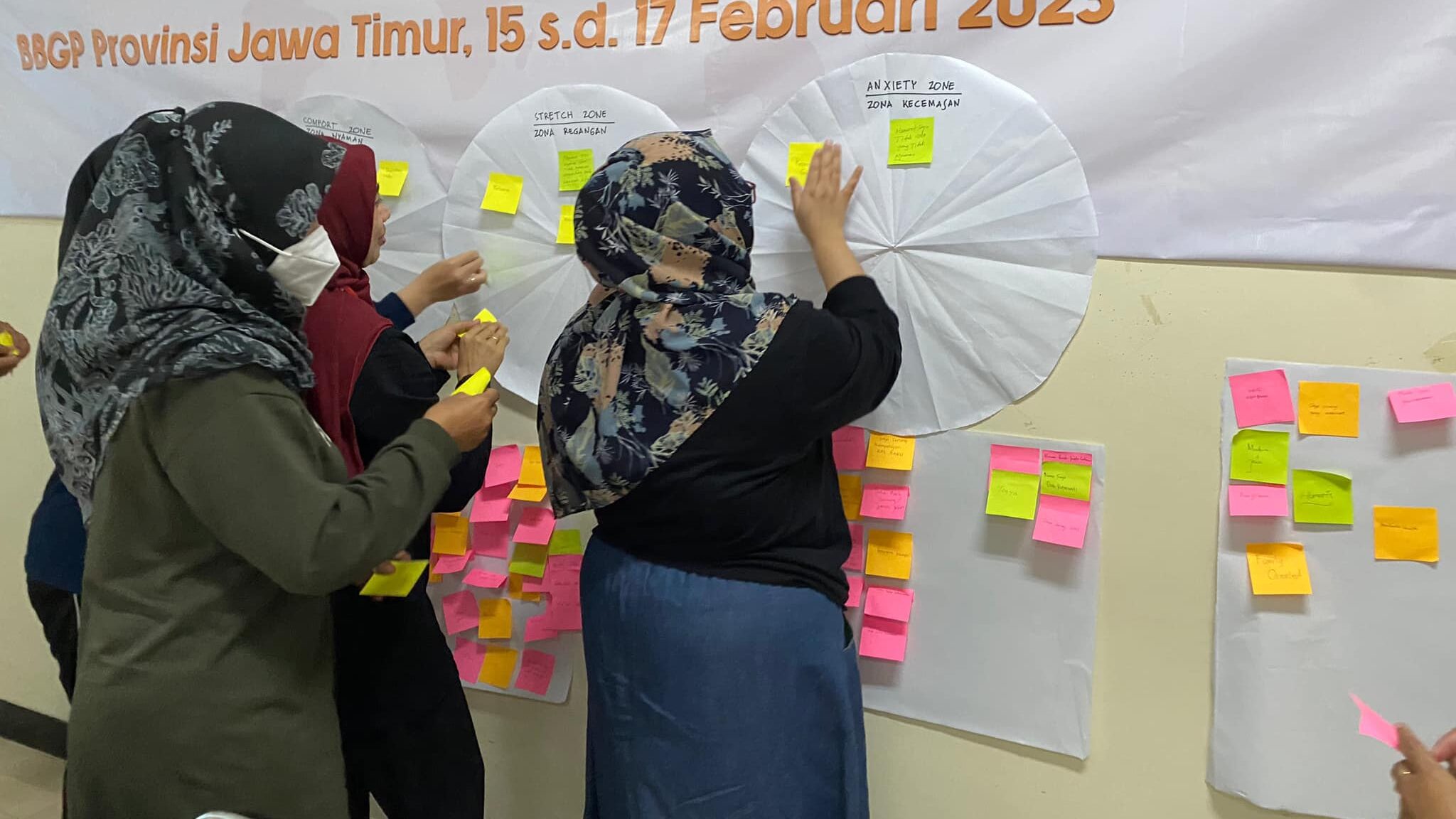
In May 2023, the second phase of the program took place with onsite workshops in five different regions: Sorong Regency, West Java, West Kalimantan, South Sukawesi, and East Java. These workshops focused on building teachers’ capacity to foster positive relationships and empower learners to create inclusive, respectful, and resilient societies. Teachers received guidance on implementing ethics education programs across various grade levels, from kindergarten to elementary, junior, and senior high school.
“For the Indonesian context, the workshop is very enriching because the experiences the teachers had is in line with their needs in the implementation of the Pancasila Students’ Profile Project. The workshop helped teachers understand more about ethics education, and more importantly, it enlightened them to make ethic education more visible and practical in their classroom,” shared Ms. Euis Lesmini Djuanda, School Principal and Fellow.
Looking Ahead
The trained teachers are now prepared to implement ethics education programs in their respective regions, positively influencing the lives of children in Indonesia. The Ethics Education Fellowship remains committed to its mission of nurturing global citizenship, building inclusive societies, and preparing students to tackle ethical challenges as active and responsible citizens.
Our gratitude goes to the fellows and all organizers who have supported the training program for teachers in Indonesia.
The post Indonesian Teachers Complete the Training Phase of the Ethics Education Fellowship Program appeared first on Ethics Education for Children.
The post Indonesian Teachers Complete the Training Phase of the Ethics Education Fellowship Program appeared first on Arigatou International.
10/03/2023 - The Rights of the Child and the Digital Environment – A Statement at the 52nd Session of the Human Rights Council

Arigatou International joined the United Nations Committee on the Rights of the Child to call for the inclusion of religious leaders and parents in training about the rights of children in the digital environment and to collaborate with them.
The statement was delivered by Ms. Emma Nowotny, Child Rights Program Officer, on 10 March 2023, during the Annual Day on Children’s Rights at the 52nd session of the Human Rights Council.
This year, the theme of the Annual Day was The Rights of the Child and the Digital Environment. Through the statement, Arigatou International called on governments, decision-makers and civil society to “invest in educational programs and spaces that empower children to take an active role in the digital environment and become positive influencers among peers.”
Human Rights Council 52nd session
Annual Discussions on the Rights of the Child
10 March 2023
Distinguished panelists,
Arigatou International welcomes the discussions on child rights and the digital environment and the important views and recommendations that children shared.In line with General comment No. 25 (2021), we call for a holistic approach to maximize the benefits and minimize the risks that the digital environment presents, to ensure that violence against children is addressed properly and mitigated.
Legal protection is crucial for a safe digital environment, but we must also prioritize combating the normalization and stigma of online violence and its intersection with other types of violence.We, therefore, call on governments, decision-makers and civil society to:
1. Develop training for those closest to children and with the moral authority to intervene and support, namely religious leaders, parents, caregivers and educators to learn about the rights of children in the digital environment, understand the risks and linkages with other violence, recognize the early signs of child’s victimization, and reporting mechanisms. We call particular attention to the role of religious leaders in many parts of the world, who are well-positioned to influence their believers and protect children. Religious communities are the largest and most connected grassroots organizations in the world, and with an immense potential to support and influence social change.2. Invest in educational programs and spaces that empower children to take an active role in the digital environment and become positive influencers among peers. This requires providing them with the space to take joint action to address hate speech and the spread of extreme ideologies, protect themselves against violence and abuse, speak up for others, and understand their rights, including in the digital environment. Ethics education programs that support the development of critical thinking, intercultural and interreligious competencies, and foster empathy and individual and collective responsibilities, have proved effective in empowering children and youth as agents of change.
To conclude, we invite all States and organizations present here to use a multi-sectoral approach to create synergies to develop more effective mechanisms to protect and empower children. It is our ethical responsibility to move beyond working in silos and collaborate.
Thank you
Arigatou International
The post The Rights of the Child and the Digital Environment – A Statement at the 52nd Session of the Human Rights Council appeared first on Ethics Education for Children.
The post The Rights of the Child and the Digital Environment – A Statement at the 52nd Session of the Human Rights Council appeared first on Arigatou International.
10/03/2023 - The Rights of the Child and the Digital Environment – A Statement at the 52nd Session of the Human Rights Council

Arigatou International joined the United Nations Committee on the Rights of the Child to call for the inclusion of religious leaders and parents in training about the rights of children in the digital environment and to collaborate with them.
The statement was delivered by Ms. Emma Nowotny, Child Rights Program Officer, on 10 March 2023, during the Annual Day on Children’s Rights at the 52nd session of the Human Rights Council.
This year, the theme of the Annual Day was The Rights of the Child and the Digital Environment. Through the statement, Arigatou International called on governments, decision-makers and civil society to “invest in educational programs and spaces that empower children to take an active role in the digital environment and become positive influencers among peers.”
Human Rights Council 52nd session
Annual Discussions on the Rights of the Child
10 March 2023
Distinguished panelists,
Arigatou International welcomes the discussions on child rights and the digital environment and the important views and recommendations that children shared.In line with General comment No. 25 (2021), we call for a holistic approach to maximize the benefits and minimize the risks that the digital environment presents, to ensure that violence against children is addressed properly and mitigated.
Legal protection is crucial for a safe digital environment, but we must also prioritize combating the normalization and stigma of online violence and its intersection with other types of violence.We, therefore, call on governments, decision-makers and civil society to:
1. Develop training for those closest to children and with the moral authority to intervene and support, namely religious leaders, parents, caregivers and educators to learn about the rights of children in the digital environment, understand the risks and linkages with other violence, recognize the early signs of child’s victimization, and reporting mechanisms. We call particular attention to the role of religious leaders in many parts of the world, who are well-positioned to influence their believers and protect children. Religious communities are the largest and most connected grassroots organizations in the world, and with an immense potential to support and influence social change.2. Invest in educational programs and spaces that empower children to take an active role in the digital environment and become positive influencers among peers. This requires providing them with the space to take joint action to address hate speech and the spread of extreme ideologies, protect themselves against violence and abuse, speak up for others, and understand their rights, including in the digital environment. Ethics education programs that support the development of critical thinking, intercultural and interreligious competencies, and foster empathy and individual and collective responsibilities, have proved effective in empowering children and youth as agents of change.
To conclude, we invite all States and organizations present here to use a multi-sectoral approach to create synergies to develop more effective mechanisms to protect and empower children. It is our ethical responsibility to move beyond working in silos and collaborate.
Thank you
Arigatou International
The post The Rights of the Child and the Digital Environment – A Statement at the 52nd Session of the Human Rights Council appeared first on Ethics Education for Children.
The post The Rights of the Child and the Digital Environment – A Statement at the 52nd Session of the Human Rights Council appeared first on Arigatou International.
02/02/2023 - Developing Policy Recommendations to Advance Faith-sensitive Mental Health and Psychosocial Support for Children on the Move
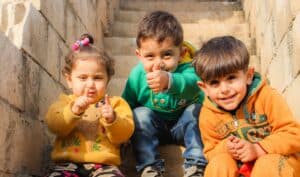
Over 150 policymakers, faith actors, representatives of governments and UN agencies and other humanitarian actors got together to produce concrete policy recommendations to advance faith-sensitive mental health and psychosocial support for children on the move.
UNICEF estimates that 37 million children are on the move in the world today. Children affected by forced migration and displacement are one of the most vulnerable groups, suffering from multiple violations of their rights and experiencing stressful and traumatic conditions that have a severe impact on their psycho-social well-being.
The rapid increase in child migration in the last decade has highlighted the need to set up specific policies and frameworks to protect children on the move.
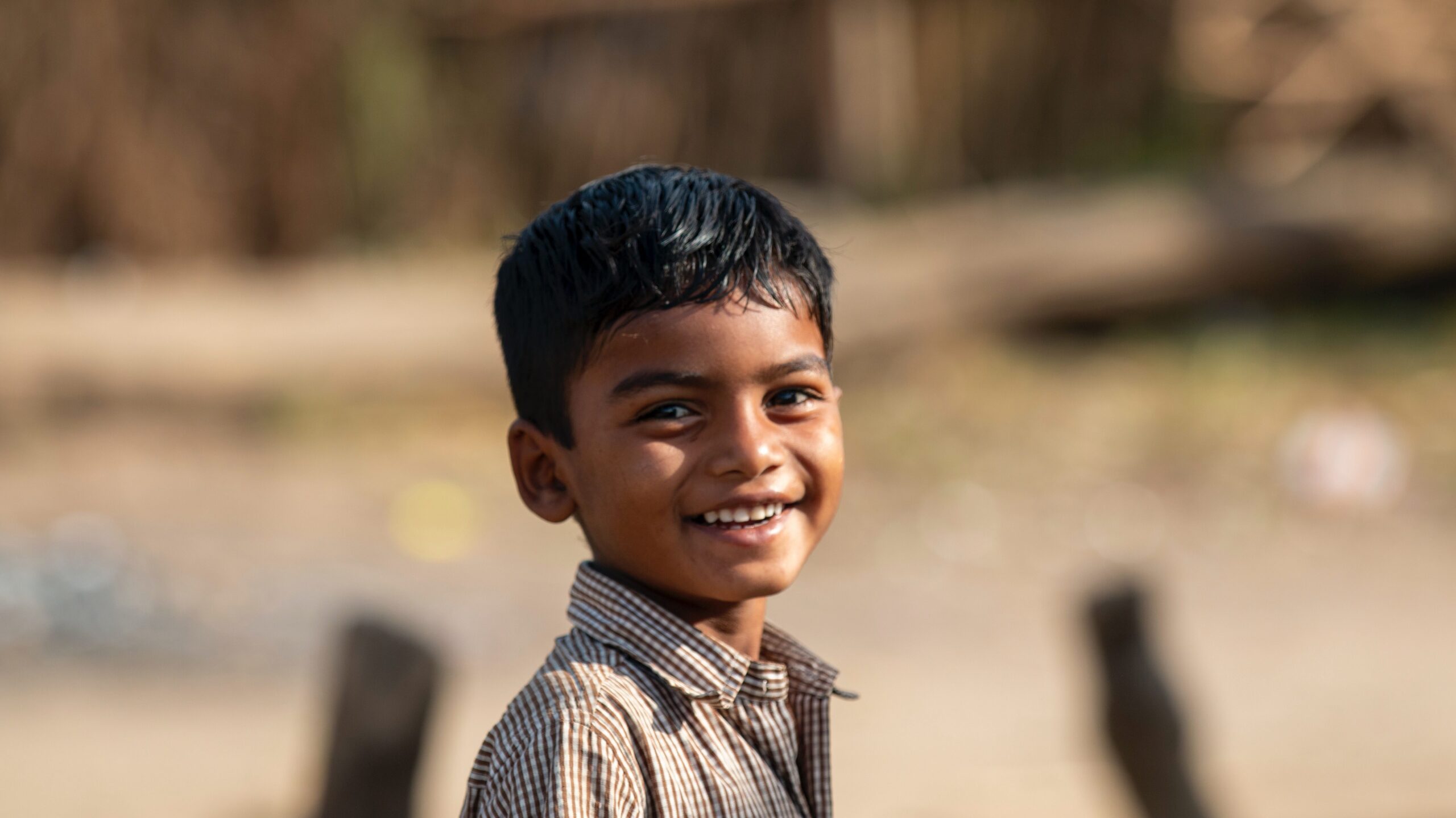
While mental health and psychosocial support of children on the move have been at the center of many effective approaches to enhance the protection and well-being of migrant children, faith-inspired psycho-social support frameworks have been largely overlooked.
“We need to meet people, children included, where they are at. We need to listen, learn, seek to understand and tailor our approaches. We need to make sure that policy leaves room for taking into consideration the religious and spiritual experience of the population in question,” stated Ms. Stephanie Shanler, Child Protection Specialist at UNICEF, during the roundtable discussion focused on Syria.
Faith-sensitive mental health and psychosocial support approaches play a crucial role in ensuring the well-being of children on the move. Spiritual nurture supports children’s resilience, acting as a protective factor positively affecting trauma responses during displacement.
Three roundtable discussions dedicated to producing policy recommendations were organized between December 2022 and February 2023. The discussions were focused on the countries of the Northern Triangle in Latin America (Guatemala, Honduras and El Salvador), Syria and Ukraine.
“It is not ‘faith-sensitive’ in terms of knowing everything about religious expression. It is very much about listening and asking questions. So much of the guidelines (Faith-Sensitive Approach in Humanitarian Response) is about mapping, assessing, listening, identifying,” highlighted Professor Alastair Ager, Director of the Institute of Global Health and Development at Queen Margaret University, at the Roundtable focused on the Ukraine crisis.
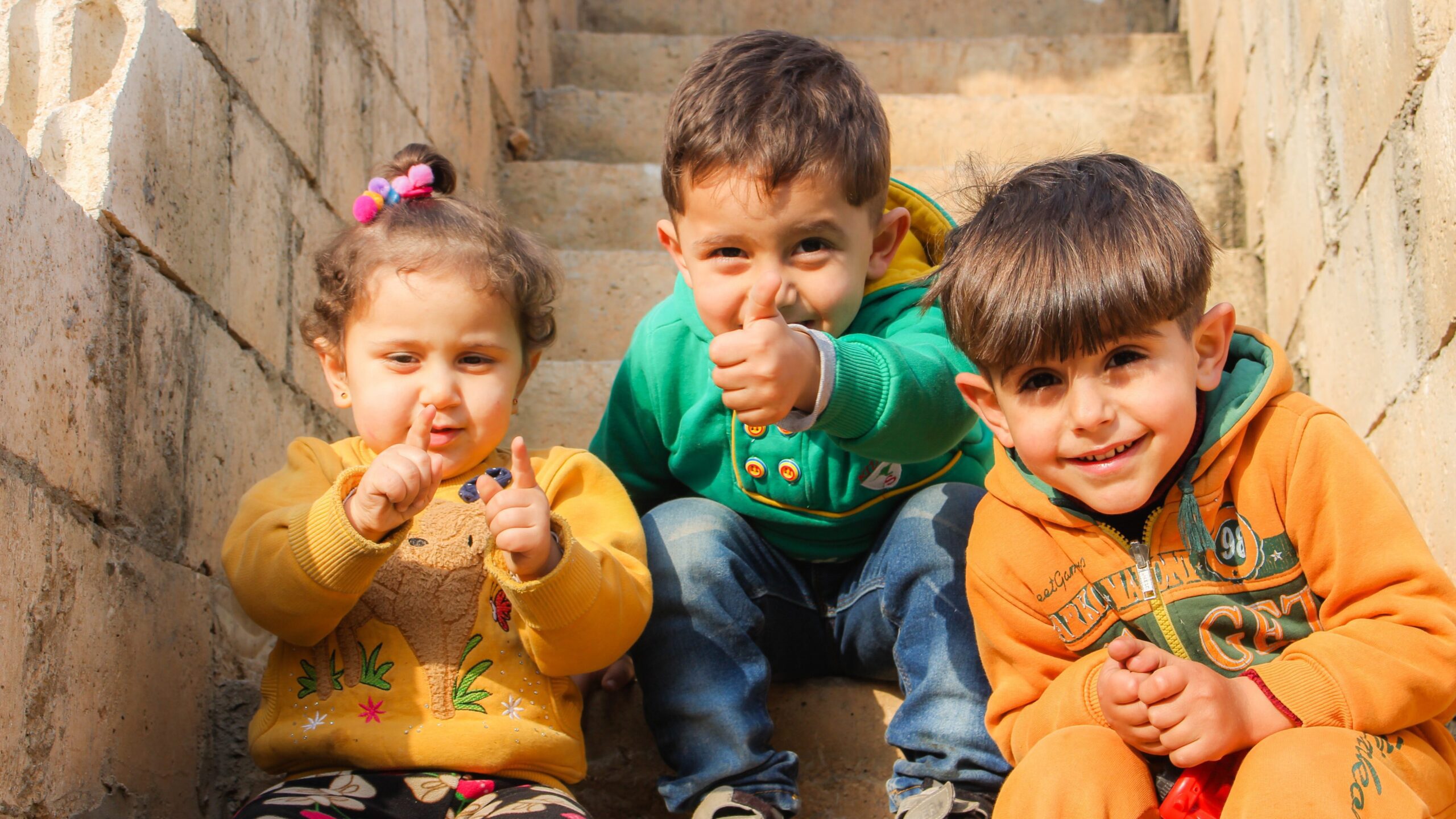
These roundtables were organized under the umbrella of the Partnership on Religion and Sustainable Development (PaRD) and sponsored by GIZ. They were co-hosted by Arigatou International, the Institute for Global Health and Development at Queen Margaret University, the United States Institute of Peace, World Vision International, KAICIID Dialogue Center, Islamic Relief Worldwide, the Network for Traditional and Religious Peacemakers and Syria Bright Future for the roundtable in Syria.
“We recognized, as we started rolling out the program, that faith leading was needed, especially as it was one of the few positive things in a child’s life that they could hold on to, that can propel positive behavior,” said Christalle Gemon, when sharing about her experience working with children and youth at the UNDP Trinidad and Tobago Accelerator Lab.
The first phase of this project took place back in 2021 when a series of three webinars were organized for educators and policymakers working with migrants and refugees in Europe. A booklet titled “Faith Sensitive Mental Health and Psychosocial Support (MHPSS) to Foster Resilience in Children on the Move” was launched in November 2021 as part of the project. The booklet builds on the reflections and recommendations collected during the series of webinars.
The policy discussions helped translate the knowledge and best practices outlined in the booklet into concrete policy recommendations. A policy brief will be developed in the first half of 2023 to inform the efforts of host governments and other relevant stakeholders in supporting, adopting and implementing faith-sensitive mental health and psychosocial support approaches as part of a broader strategy to foster peacebuilding and sustaining peace.
The post Developing Policy Recommendations to Advance Faith-sensitive Mental Health and Psychosocial Support for Children on the Move appeared first on Ethics Education for Children.
The post Developing Policy Recommendations to Advance Faith-sensitive Mental Health and Psychosocial Support for Children on the Move appeared first on Arigatou International.
02/02/2023 - Developing Policy Recommendations to Advance Faith-sensitive Mental Health and Psychosocial Support for Children on the Move

Over 150 policymakers, faith actors, representatives of governments and UN agencies and other humanitarian actors got together to produce concrete policy recommendations to advance faith-sensitive mental health and psychosocial support for children on the move.
UNICEF estimates that 37 million children are on the move in the world today. Children affected by forced migration and displacement are one of the most vulnerable groups, suffering from multiple violations of their rights and experiencing stressful and traumatic conditions that have a severe impact on their psycho-social well-being.
The rapid increase in child migration in the last decade has highlighted the need to set up specific policies and frameworks to protect children on the move.

While mental health and psychosocial support of children on the move have been at the center of many effective approaches to enhance the protection and well-being of migrant children, faith-inspired psycho-social support frameworks have been largely overlooked.
“We need to meet people, children included, where they are at. We need to listen, learn, seek to understand and tailor our approaches. We need to make sure that policy leaves room for taking into consideration the religious and spiritual experience of the population in question,” stated Ms. Stephanie Shanler, Child Protection Specialist at UNICEF, during the roundtable discussion focused on Syria.
Faith-sensitive mental health and psychosocial support approaches play a crucial role in ensuring the well-being of children on the move. Spiritual nurture supports children’s resilience, acting as a protective factor positively affecting trauma responses during displacement.
Three roundtable discussions dedicated to producing policy recommendations were organized between December 2022 and February 2023. The discussions were focused on the countries of the Northern Triangle in Latin America (Guatemala, Honduras and El Salvador), Syria and Ukraine.
“It is not ‘faith-sensitive’ in terms of knowing everything about religious expression. It is very much about listening and asking questions. So much of the guidelines (Faith-Sensitive Approach in Humanitarian Response) is about mapping, assessing, listening, identifying,” highlighted Professor Alastair Ager, Director of the Institute of Global Health and Development at Queen Margaret University, at the Roundtable focused on the Ukraine crisis.

These roundtables were organized under the umbrella of the Partnership on Religion and Sustainable Development (PaRD) and sponsored by GIZ. They were co-hosted by Arigatou International, the Institute for Global Health and Development at Queen Margaret University, the United States Institute of Peace, World Vision International, KAICIID Dialogue Center, Islamic Relief Worldwide, the Network for Traditional and Religious Peacemakers and Syria Bright Future for the roundtable in Syria.
“We recognized, as we started rolling out the program, that faith leading was needed, especially as it was one of the few positive things in a child’s life that they could hold on to, that can propel positive behavior,” said Christalle Gemon, when sharing about her experience working with children and youth at the UNDP Trinidad and Tobago Accelerator Lab.
The first phase of this project took place back in 2021 when a series of three webinars were organized for educators and policymakers working with migrants and refugees in Europe. A booklet titled “Faith Sensitive Mental Health and Psychosocial Support (MHPSS) to Foster Resilience in Children on the Move” was launched in November 2021 as part of the project. The booklet builds on the reflections and recommendations collected during the series of webinars.
The policy discussions helped translate the knowledge and best practices outlined in the booklet into concrete policy recommendations. A policy brief will be developed in the first half of 2023 to inform the efforts of host governments and other relevant stakeholders in supporting, adopting and implementing faith-sensitive mental health and psychosocial support approaches as part of a broader strategy to foster peacebuilding and sustaining peace.
The post Developing Policy Recommendations to Advance Faith-sensitive Mental Health and Psychosocial Support for Children on the Move appeared first on Ethics Education for Children.
The post Developing Policy Recommendations to Advance Faith-sensitive Mental Health and Psychosocial Support for Children on the Move appeared first on Arigatou International.
27/08/2022 - Transformative pedagogy for peacebuilding: a guide for teachers
Resources
Transformative pedagogy for peacebuilding: a guide for teachers
This guide was produced by UNESCO’s International Institute for Capacity Building in Africa, as part of the Teacher Training and Development for Peacebuilding in the Horn of Africa and Surrounding Countries project. Arigatou International contributed as a technical partner.
This guide is designed to build the capacity of teachers so that they are informed and empowered in why and how to educate for peacebuilding.
The post Transformative pedagogy for peacebuilding: a guide for teachers appeared first on Ethics Education for Children.
The post Transformative pedagogy for peacebuilding: a guide for teachers appeared first on Arigatou International.
27/08/2022 - Transformative pedagogy for peacebuilding: a guide for teachers
Resources
Transformative pedagogy for peacebuilding: a guide for teachers
This guide was produced by UNESCO’s International Institute for Capacity Building in Africa, as part of the Teacher Training and Development for Peacebuilding in the Horn of Africa and Surrounding Countries project. Arigatou International contributed as a technical partner.
This guide is designed to build the capacity of teachers so that they are informed and empowered in why and how to educate for peacebuilding.
The post Transformative pedagogy for peacebuilding: a guide for teachers appeared first on Ethics Education for Children.
The post Transformative pedagogy for peacebuilding: a guide for teachers appeared first on Arigatou International.
27/08/2022 - Training Guides Series N°1 | International Train the Trainers Course – Report
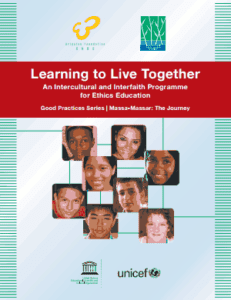
Resources
Training Guides Series N°1 | International Train the Trainers Course – Report
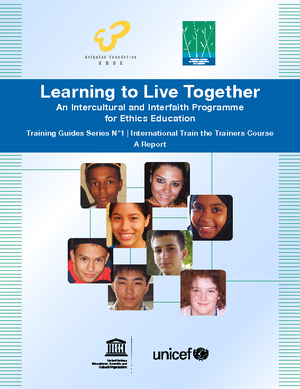
Training of Trainers Booklet
The post Training Guides Series N°1 | International Train the Trainers Course – Report appeared first on Ethics Education for Children.
The post Training Guides Series N°1 | International Train the Trainers Course – Report appeared first on Arigatou International.
27/08/2022 - Training Guides Series N°1 | International Train the Trainers Course – Report

Resources
Training Guides Series N°1 | International Train the Trainers Course – Report

Training of Trainers Booklet
The post Training Guides Series N°1 | International Train the Trainers Course – Report appeared first on Ethics Education for Children.
The post Training Guides Series N°1 | International Train the Trainers Course – Report appeared first on Arigatou International.
27/08/2022 - Good Practices Series 2 | Learning to Play Together

Resources
Good Practices Series 2 | Learning to Play Together
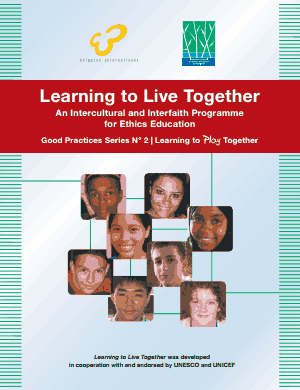
Good Practices Series 2 | Learning to Play Together
The post Good Practices Series 2 | Learning to Play Together appeared first on Ethics Education for Children.
The post Good Practices Series 2 | Learning to Play Together appeared first on Arigatou International.
27/08/2022 - Good Practices Series 2 | Learning to Play Together

Resources
Good Practices Series 2 | Learning to Play Together

Good Practices Series 2 | Learning to Play Together
The post Good Practices Series 2 | Learning to Play Together appeared first on Ethics Education for Children.
The post Good Practices Series 2 | Learning to Play Together appeared first on Arigatou International.
26/08/2022 - Good Practices Series | Massa-Massar: The Journey

Resources
Good Practices Series | Massa-Massar: The Journey
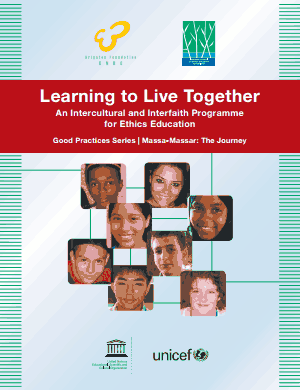
Good Practices Series | Massa-Massar: The Journey
The post Good Practices Series | Massa-Massar: The Journey appeared first on Ethics Education for Children.
The post Good Practices Series | Massa-Massar: The Journey appeared first on Arigatou International.
26/08/2022 - Good Practices Series | Massa-Massar: The Journey

Resources
Good Practices Series | Massa-Massar: The Journey

Good Practices Series | Massa-Massar: The Journey
The post Good Practices Series | Massa-Massar: The Journey appeared first on Ethics Education for Children.
The post Good Practices Series | Massa-Massar: The Journey appeared first on Arigatou International.
26/08/2022 - Learning to Live Together Programme – An Intercultural and Interfaith Programme for Ethics Education
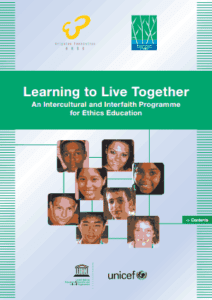
Resources
Learning to Live Together Programme – An Intercultural and Interfaith Programme for Ethics Education
The post Learning to Live Together Programme – An Intercultural and Interfaith Programme for Ethics Education appeared first on Ethics Education for Children.
The post Learning to Live Together Programme – An Intercultural and Interfaith Programme for Ethics Education appeared first on Arigatou International.
26/08/2022 - Learning to Live Together Programme – An Intercultural and Interfaith Programme for Ethics Education

Resources
Learning to Live Together Programme – An Intercultural and Interfaith Programme for Ethics Education
The post Learning to Live Together Programme – An Intercultural and Interfaith Programme for Ethics Education appeared first on Ethics Education for Children.
The post Learning to Live Together Programme – An Intercultural and Interfaith Programme for Ethics Education appeared first on Arigatou International.
02/06/2022 - Workshop on Peace and Resilience Building in Cameroon to Help Tackling Violent Extremism in Africa
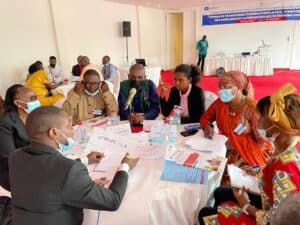
A four-day capacity building workshop was carried out in Douala, Cameroon on Transformative Pedagogy to Build Peace and Resilience, and Preventing Violent Extremism (PVE) in Africa.
The workshop, held from 10 to 13 May 2022, was organized by the UNESCO International Institute for Capacity Building in Africa – IICBA in collaboration with the UNESCO Office in Yaoundé and Arigatou International – Geneva. This activity is part of the project “Peace and Resilience Building and the Prevention of Violent Extremism in Africa through Teacher Training” led by UNESCO IICBA and supported by the Government of Japan.

The project builds on lessons learned from previous interventions carried out in the Horn of Africa in 2017 and the Sahel region in 2018, also with the support of the Government of Japan. Since the beginning of these interventions, over 6,500 teacher trainers and teachers have been trained in transformative pedagogy, and four teaching guides have been developed.
This workshop was custom-made for French-speaking participants from Burundi, Cameron, Central African Republic, Democratic Republic of Congo and Chad. Participants included more than 40 university lecturers and representatives from UNESCO offices in the region.
The workshop sought to build capacities to instill peace, build resilience, and prevent violent extremism through education with a focus on teacher training. Specifically, the training targeted faculties of education and university peace institutes in the region. The workshop was based on the guide Youth Empowerment for Peace and Building Resilience and Preventing Violent Extremism in the Sahel and Neighboring Countries: A Guide for Teachers (2019) and its activities.

“The aim of the workshop is to promote within the school, which is a sacred space, the understanding of all the dangers surrounding violent speech and discrimination,” said Mr. Paul Coustere, Director, UNESCO, Regional Bureau for Central Africa.
During the workshop, a group of representatives from civil society organizations and youth-led groups was invited to share their views and reflections on the topic of Education for Peace. “We also have invited a group of young people, because we are talking about violent extremism, and we know that violent extremists recruit, in general, among youngsters because they are vulnerable, they are not rich, and the temptation is very high for them to be recruited through monetary means,” stated Mr. Saliou Sall, Senior Program Coordinator, UNESCO-IICBA.

The workshop equipped participants with the knowledge and skills to understand how issues of peace, resilience and PVE through education manifest and intersect in the region. Through the activities, they identified strategies for peace, resilience building and PVE through education in their own contexts and developed a training session plan using Arigatou International’s transformational pedagogical approach. By the end of the workshop, participants developed a localized action plan to integrate the teacher training curriculum guide into their higher education institutions.
We thank UNESCO IICBA for inviting Arigatou International – Geneva once again, as a technical partner in this project. We thank the facilitators for their dedication and shared wisdom and the participants for their commitment and enthusiasm.

The post Workshop on Peace and Resilience Building in Cameroon to Help Tackling Violent Extremism in Africa appeared first on Ethics Education for Children.
The post Workshop on Peace and Resilience Building in Cameroon to Help Tackling Violent Extremism in Africa appeared first on Arigatou International.
02/06/2022 - Workshop on Peace and Resilience Building in Cameroon to Help Tackling Violent Extremism in Africa

A four-day capacity building workshop was carried out in Douala, Cameroon on Transformative Pedagogy to Build Peace and Resilience, and Preventing Violent Extremism (PVE) in Africa.
The workshop, held from 10 to 13 May 2022, was organized by the UNESCO International Institute for Capacity Building in Africa – IICBA in collaboration with the UNESCO Office in Yaoundé and Arigatou International – Geneva. This activity is part of the project “Peace and Resilience Building and the Prevention of Violent Extremism in Africa through Teacher Training” led by UNESCO IICBA and supported by the Government of Japan.

The project builds on lessons learned from previous interventions carried out in the Horn of Africa in 2017 and the Sahel region in 2018, also with the support of the Government of Japan. Since the beginning of these interventions, over 6,500 teacher trainers and teachers have been trained in transformative pedagogy, and four teaching guides have been developed.
This workshop was custom-made for French-speaking participants from Burundi, Cameron, Central African Republic, Democratic Republic of Congo and Chad. Participants included more than 40 university lecturers and representatives from UNESCO offices in the region.
The workshop sought to build capacities to instill peace, build resilience, and prevent violent extremism through education with a focus on teacher training. Specifically, the training targeted faculties of education and university peace institutes in the region. The workshop was based on the guide Youth Empowerment for Peace and Building Resilience and Preventing Violent Extremism in the Sahel and Neighboring Countries: A Guide for Teachers (2019) and its activities.

“The aim of the workshop is to promote within the school, which is a sacred space, the understanding of all the dangers surrounding violent speech and discrimination,” said Mr. Paul Coustere, Director, UNESCO, Regional Bureau for Central Africa.
During the workshop, a group of representatives from civil society organizations and youth-led groups was invited to share their views and reflections on the topic of Education for Peace. “We also have invited a group of young people, because we are talking about violent extremism, and we know that violent extremists recruit, in general, among youngsters because they are vulnerable, they are not rich, and the temptation is very high for them to be recruited through monetary means,” stated Mr. Saliou Sall, Senior Program Coordinator, UNESCO-IICBA.

The workshop equipped participants with the knowledge and skills to understand how issues of peace, resilience and PVE through education manifest and intersect in the region. Through the activities, they identified strategies for peace, resilience building and PVE through education in their own contexts and developed a training session plan using Arigatou International’s transformational pedagogical approach. By the end of the workshop, participants developed a localized action plan to integrate the teacher training curriculum guide into their higher education institutions.
We thank UNESCO IICBA for inviting Arigatou International – Geneva once again, as a technical partner in this project. We thank the facilitators for their dedication and shared wisdom and the participants for their commitment and enthusiasm.

The post Workshop on Peace and Resilience Building in Cameroon to Help Tackling Violent Extremism in Africa appeared first on Ethics Education for Children.
The post Workshop on Peace and Resilience Building in Cameroon to Help Tackling Violent Extremism in Africa appeared first on Arigatou International.
02/06/2022 - Members of GNRC-Guatemala Participate in a Training Workshop
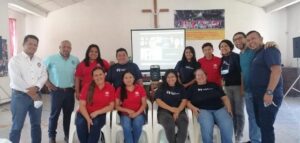
A group of 14 educators and representatives of organizations participated in a training workshop on the Learning to Live Together program in Guatemala.
The workshop was held in a blended format in Guatemala City on 9, 10, 11 and 13 May 2022. The activity sought to train facilitators belonging to Puerta de Esperanza, Fe y Alegría and ODHAG, both members of the Global Network of Religions for Children (GNRC) in Guatemala.

During the workshop, the participants were able to become familiar with the main concepts of the Learning to Live Together program, its methodologies and its educational approach. “I found particularly interesting that with this approach children are at the center. It reflects on their realities, it provokes transformation,” asserted a participant.
The participants reflected on the violence that affects children and adolescents in the contexts in which they work, and the role that values-based education can play in promoting peace and resilience. “Educating is not just being in front of a group of students, but living together in unity and fraternity,” shared another participant at the end of the workshop.
The workshop is part of a project carried out by Puerta de Esperanza with the support of Toybox, an international NGO that has been working for more than 25 years to help children and young people around the world get off the streets. The project aims to strengthen the protection and resilience factors in children and adolescents who work, live or operate in the “Mercado La Terminal, zone 4” of Guatemala City, through the implementation of Learning to Live Together and its transformative pedagogy.
We thank the facilitators and participants for their commitment and enthusiasm. We hope that this training workshop can provide a basis for the implementation of the project with the children of Guatemala.

The post Members of GNRC-Guatemala Participate in a Training Workshop appeared first on Ethics Education for Children.
The post Members of GNRC-Guatemala Participate in a Training Workshop appeared first on Arigatou International.






